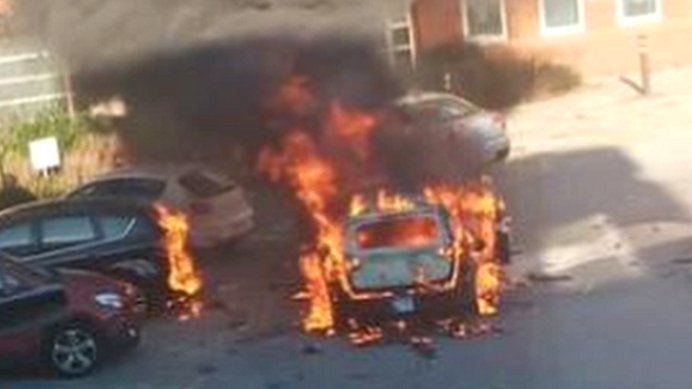Liverpool Women's Hospital explosion: Terror threat level raised to 'severe'
- Published
Watch: The cab pulled up outside Liverpool Women's Hospital and exploded into flames
The UK terror threat level has been raised to "severe" after an explosion outside Liverpool Women's Hospital.
Taxi driver David Perry survived the blast but his passenger was killed when a homemade bomb exploded shortly before 11:00 GMT on Remembrance Sunday.
The man, who is believed to have manufactured and brought the device into the taxi, died at the scene.
Police said the motivation for the attack was unclear but it had been declared as a terrorist incident.
Home Secretary Priti Patel said the threat level had been raised from "substantial" to "severe", meaning an attack is highly likely, because the explosion in Liverpool was the second incident in a month.
The death of Conservative MP Sir David Amess, who was stabbed multiple times during a meeting with his constituents in Essex on 15 October, has been treated as a terrorist incident by police.
Home Secretary Priti Patel: "What we saw yesterday was the second incident within a month"
Head of Counter Terrorism Policing North West, Russ Jackson, said the taxi passenger appeared to have made an "improvised explosive device" which caused the blast.
He said police knew the identity of the attacker but would not confirm his name at this stage.
The man is not believed to have been known to MI5, according to BBC security correspondent Gordon Corera.
Four men have been arrested in the city under the Terrorism Act as part of the investigation.
Prime Minister Boris Johnson, who chaired an emergency Cobra meeting earlier in response to the explosion, described it as a "sickening attack".
He said it was a "stark reminder for all of us to remain vigilant", but added "the British people will never be cowed by terrorism".
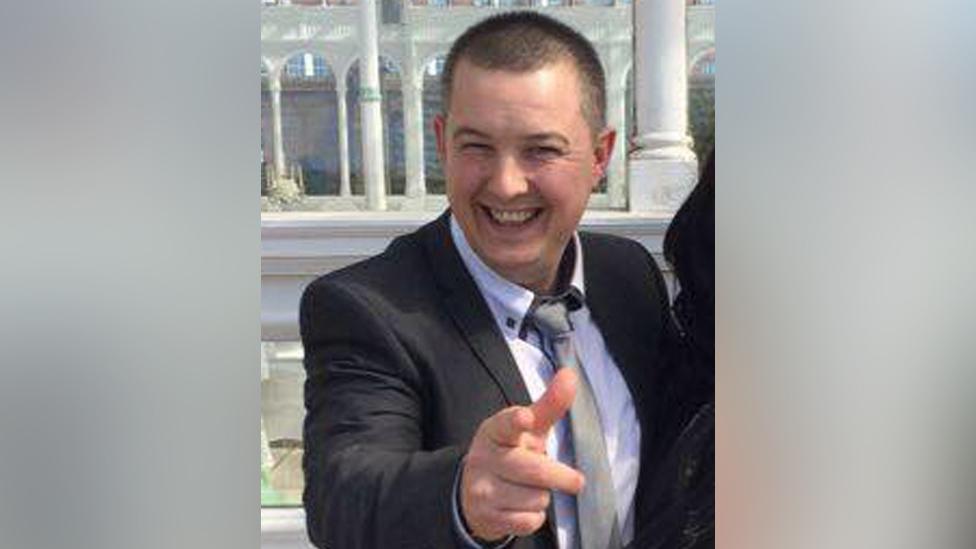
Taxi driver David Perry has been released from hospital
Mr Jackson said Delta Taxis driver Mr Perry picked up a passenger in Rutland Avenue, near Sefton Park, on Sunday.
"As the taxi approached the drop-off point at the hospital an explosion occurred from within the car. This quickly engulfed it in flames," he said.
"Remarkably the taxi driver escaped from the cab."
Posting on Facebook, Mr Perry's wife Rachel said he was "lucky to be alive".
"The explosion happened whilst he was in the car and how he managed to escape is an utter miracle," she added.
Mr Jackson said the taxi driver had been released from hospital after being treated for his injuries.
He said police were "aware there were Remembrance events just a short distance away from the hospital and that the ignition occurred shortly before 11:00 GMT".
"We cannot at this time draw any connection with this but it is a line of inquiry we are pursuing," he added.


While the police believe they know who the attacker was, difficult forensic work may be continuing to confirm the identity - particularly if experts have to resort to dental records and DNA.
Digital forensic teams investigate the dead man's online habits and contacts. Officers will want to build a picture of his movements from mobile phone data and financial transactions.
Bomb experts will be looking at how the device was made.
These strands may lead detectives to vital CCTV evidence and locations or witnesses that will help reveal the attacker's planning.
But the biggest priority will be to establish - if possible - whether there is any ongoing threat to the public.

Police said a man, aged 20, was arrested earlier in the Kensington area of the city and was in custody.
Three other men - aged 21, 26 and 29 - were detained on Sunday in Sutcliffe Street in Kensington.
Mr Jackson said the arrested men were believed to be "associates" of the taxi passenger.
He said officers were looking at the man's associates, his telephone records and purchases he may have made.
Watch: Police say passenger brought explosive device into taxi
Officers are searching two addresses, one in Sutcliffe Street and a second at Rutland Avenue, where "significant items" had been found, police said.
A cordon is in place at both locations and eight families have been evacuated from their homes.
Police have confirmed a controlled explosion was carried out as a precaution in the Sefton Park area, close to Rutland Avenue, at about 16:00 GMT on Monday as part of the investigation but there was no wider risk to the public.
Frances Evans, who witnessed the explosion, told BBC News that three police vans and a little black van had pulled up before covering an unknown item.
"They weren't there long, probably 20 minutes max," she said. "I saw the explosion, the smoke and heard the bang."
Mr Jackson said police had linked the taxi passenger to both the addresses but were uncertain which one he lived at.
Neighbour Sharon Cullen said she was evacuated from her home near Sutcliffe Street by officers telling her "whatever is going on at the back of the house, it could blow the block".
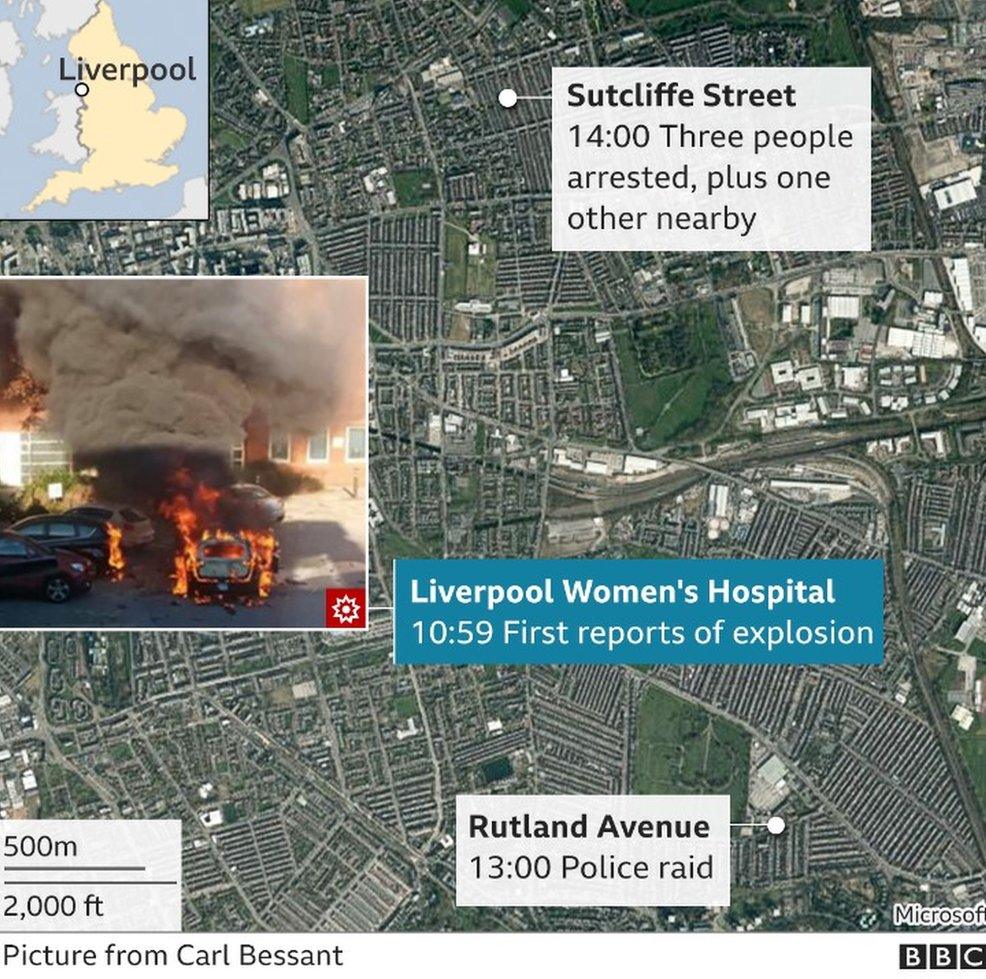
The home secretary said the explosion had a "very significant impact across the community" in Liverpool and her thoughts were with people in the city.
Ms Patel said the government would "continue to work with everyone when it comes to the security of our country and making sure that we're taking all the necessary steps required".
Assessments of threat levels are taken by the Joint Terrorism Analysis Centre (JTAC), part of MI5, which makes recommendations independently from the government.
A "severe" threat, external is classed as an attack on the UK being "highly likely" and is the second highest alert below "critical", which means an attack is "highly likely in the near future".


The rise in the threat level is not based on specific intelligence of an ongoing threat in Liverpool.
Rather it is based on an overall assessment by the Joint Terrorism Analysis Centre.
They have looked at the fact that there have been two incidents in the last month - the killing of Sir David Amess MP and now Liverpool - and judged that the overall picture has changed.
It is not totally clear what the cause is - some speculate about people being inspired by international events, others wonder if it is to do with people emerging out of lockdown after having been radicalised online.

Health Secretary Sajid Javid paid tribute to NHS staff at Liverpool Women's Hospital, as well as members of the emergency services, saying in the House of Commons they had showed the "utmost professionalism in the most difficult of circumstances".
The chief executive of Liverpool Women's Hospital, Kathryn Thomson, paid tribute to "brave and dedicated" staff and emergency service workers but added the last two days had been "extremely upsetting and traumatising".
She added that despite security and police on site, services were now running "as close to normal as can be expected".

Did you witness what happened? Email haveyoursay@bbc.co.uk, external.
Please include a contact number if you are willing to speak to a BBC journalist. You can also get in touch in the following ways:
WhatsApp: +44 7756 165803
Tweet: @BBC_HaveYourSay, external
Please read our terms & conditions and privacy policy
If you are reading this page and can't see the form you will need to visit the mobile version of the BBC website to submit your question or comment or you can email us at HaveYourSay@bbc.co.uk, external. Please include your name, age and location with any submission.
Related topics
- Published15 November 2021
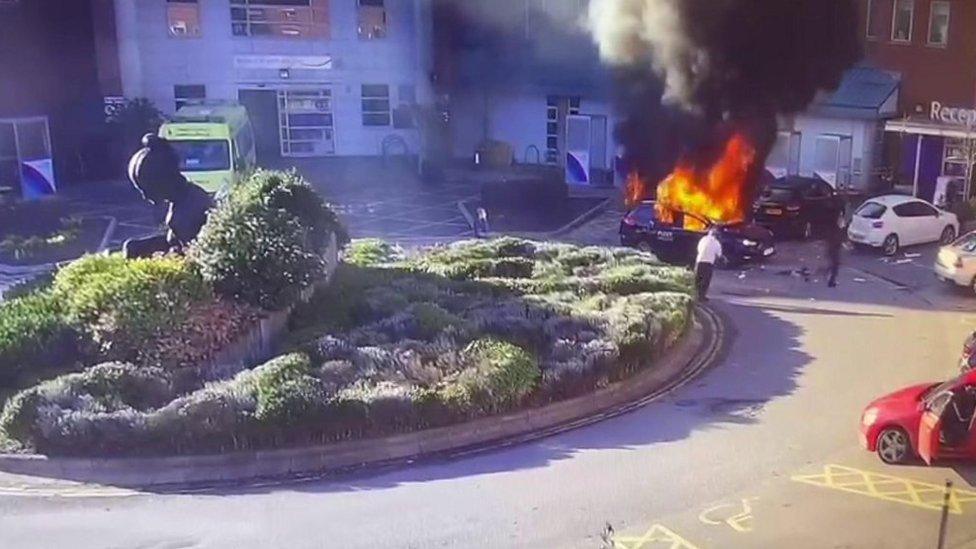
- Published18 November 2021
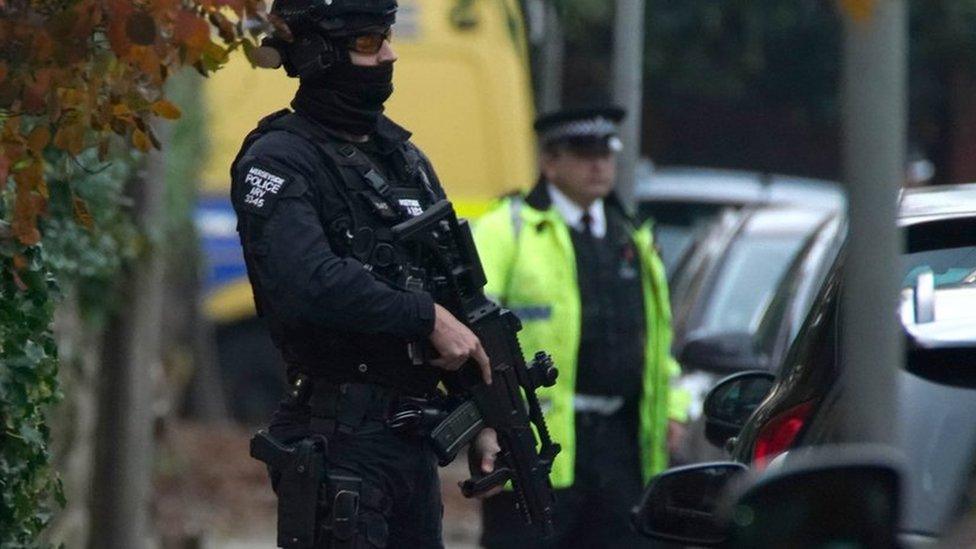
- Published15 November 2021
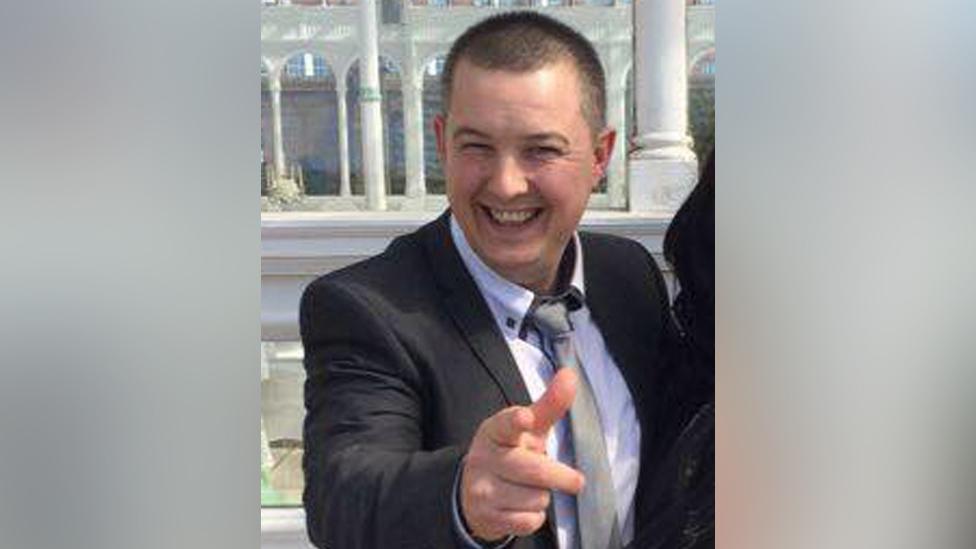
- Published15 November 2021
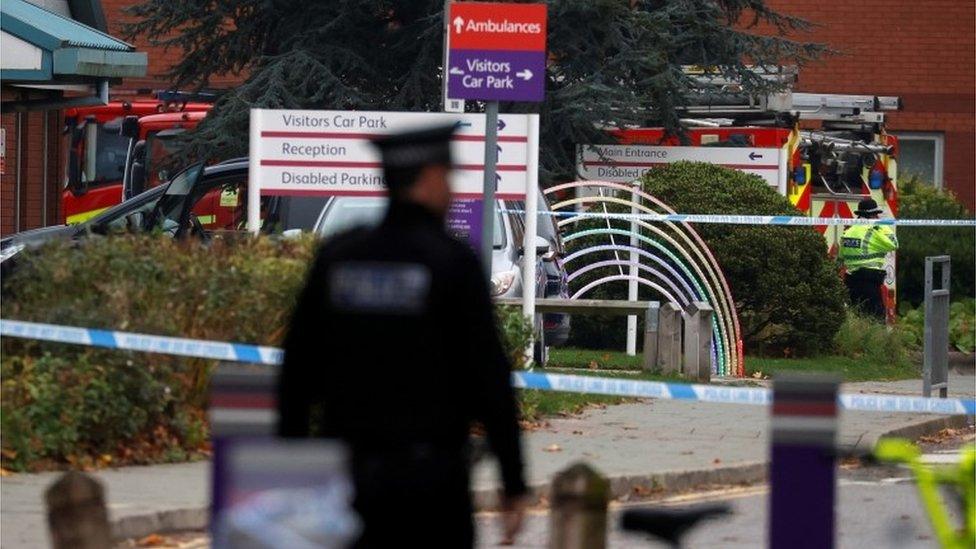
- Published15 November 2021
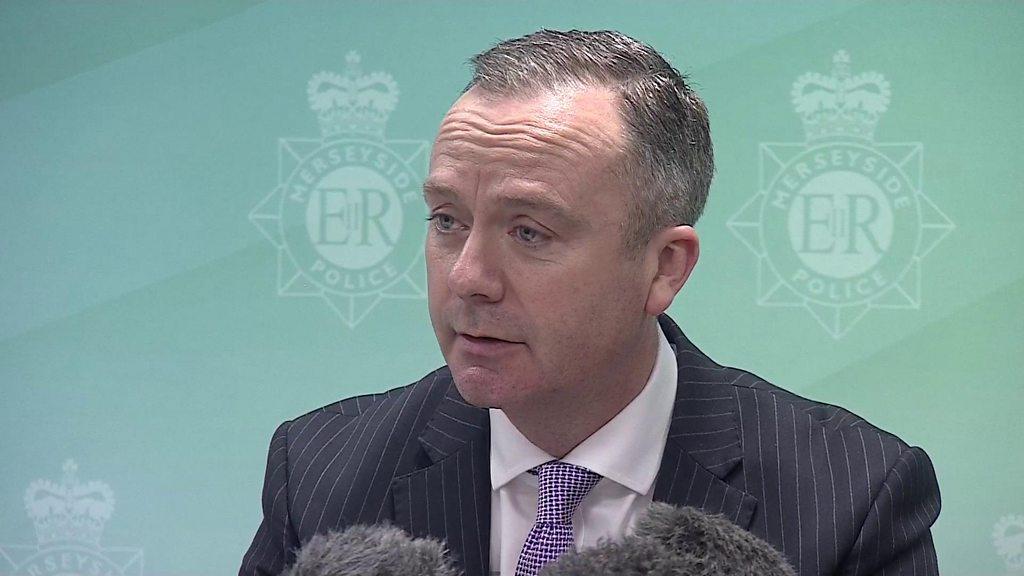
- Published15 November 2021
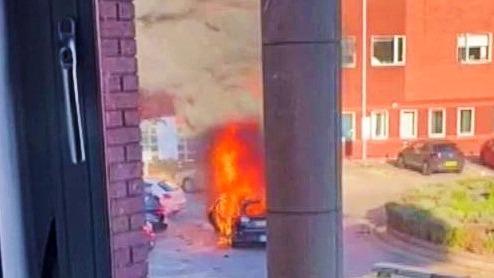
- Published15 November 2021
